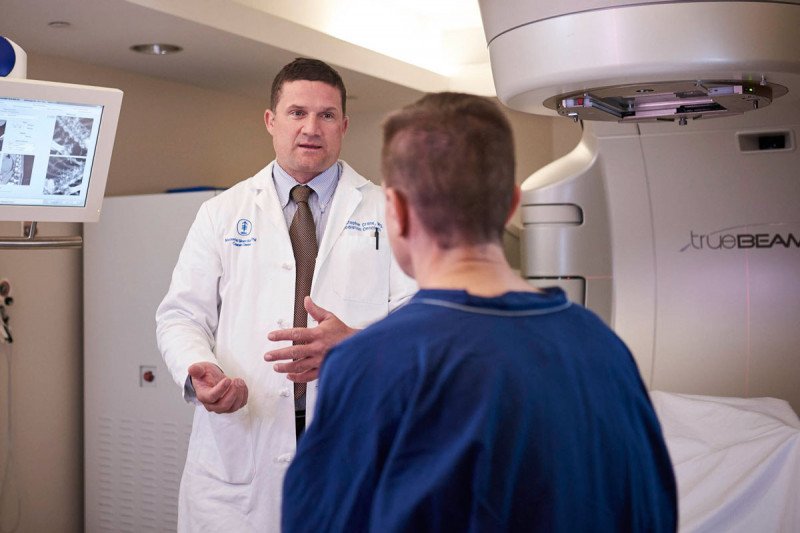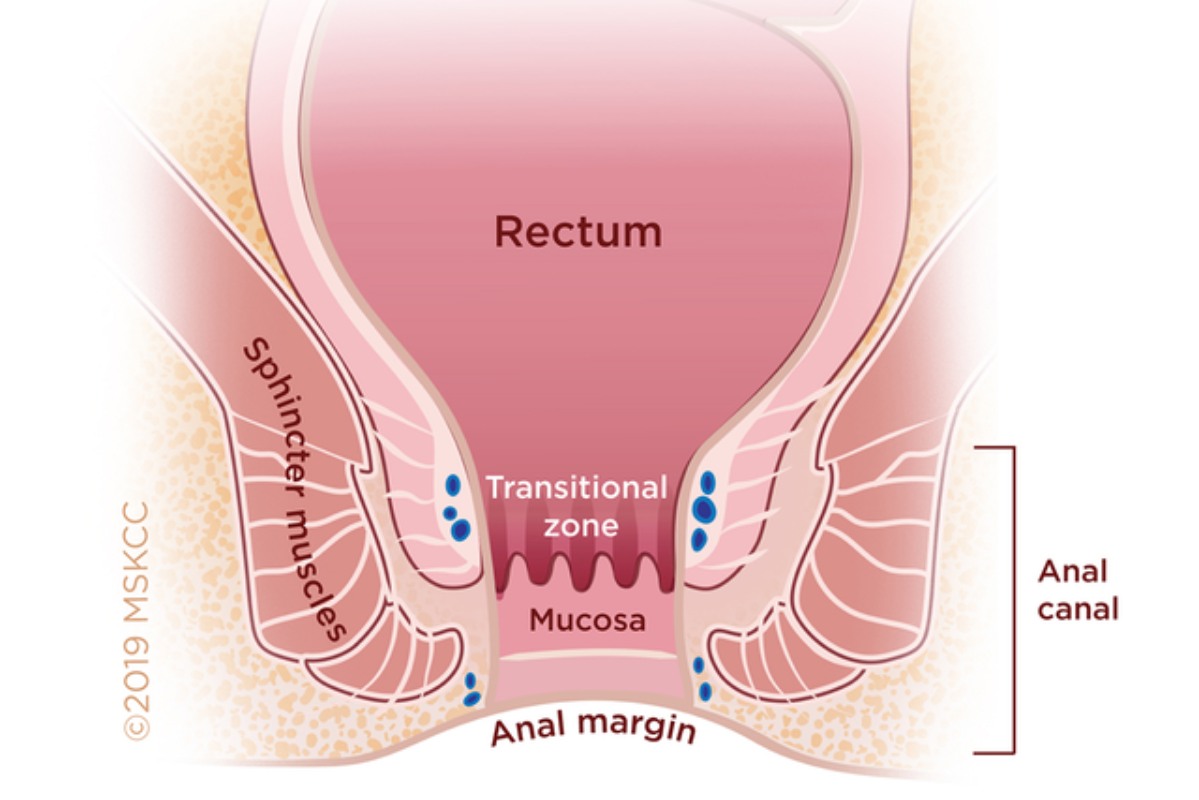
Radiation oncologist Christopher Crane is one of MSK’s many experts in diagnosing and treating anal cancer.
Anal cancer is rare. Because it’s rare, it’s important to find cancer experts experienced in this disease. They will be able to confirm your diagnosis and design a treatment plan that’s right for you. MSK can help you get the best treatment, results, and quality of life after a diagnosis of anal cancer.
MSK’s experts on anal cancer have information about:
- Anal Cancer Causes and Risk Factors
- Anal Cancer Signs and Symptoms
- Anal Cancer Diagnosis and Staging
- Anal Cancer Treatment
What is anal cancer?

The anus is at the end of the rectum. Its role is to hold stool (poop) inside the body until you have a bowel movement. Anal cancer is different from rectal cancer.
Cancer of the anus, or anal cancer, is rare. There are only an estimated 9,440 new cases in the U.S., according to 2022 figures from the American Cancer Society. About 2 out of every 3 of those cases are in women. Anyone can get anal cancer, but it’s more common in women.
About 9 out of every 10 cases are caused by the human papillomavirus (HPV). This is a common virus that can be passed from one person to another during sexual activity. HPV can spread through skin-to-skin contact.
Learn more about the HPV vaccine. Watch a video about HPV vaccine facts.
It’s important to go to your doctor as soon as you notice something is wrong. These are signs of anal cancer:
- Itching.
- Bleeding.
- Pain when you go to the bathroom (poop).
- Feeling like you have a lump inside your anus.
What are the types of anal cancer?
There are several kinds of anal cancer. It’s important to get an accurate diagnosis to make sure your treatment plan matches the type you have. MSK’s expert radiologists and pathologists (doctors who use a microscope to diagnose disease) will review your tests to confirm the type.
Learn more about how anal cancer is diagnosed.
Here are the types of anal cancer:
-
Squamous Cell Carcinoma
About 9 out of every 10 cases start in the squamous cells that line the outer layer of the anus. If found early, these cancers often are very treatable. -
Adenocarcinoma
Adenocarcinoma is found in the upper part of the anus. This cancer forms in glandular tissue, which lines some internal organs. -
Basal Cell Carcinoma
Basal cell carcinoma is found in the skin around the anus. It is most often treated with surgery. It is a very rare type of anal cancer. -
Melanoma
Melanoma is a very rare type of anal cancer. It can be very hard to spot, which means it is often found at a later stage.
How is anal cancer treated?
These are the treatments for anal cancer.
- Intensity-modulated radiation therapy is the most common treatment. It delivers high doses of radiation to the tumor while keeping healthy nearby tissue safe.
- Chemotherapy uses powerful drugs to kill cancer cells. It is often combined with radiation therapy to help weaken the cancer. This is called chemoradiation.
- Surgery is a less common treatment and depends on the size, location, and stage of the tumor.
Your MSK care team will treat the disease while helping you live the life you want, during and after treatment. We will talk with you about treatment options based on your preferences and lifestyle. MSK experts in sexual health, pelvic floor physical therapy, fertility, and nutrition will help create your care plan.
We’re available 24 hours a day, 7 days a week



